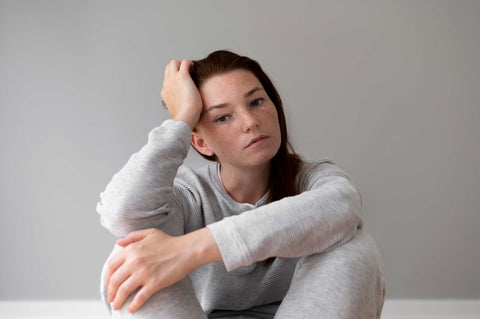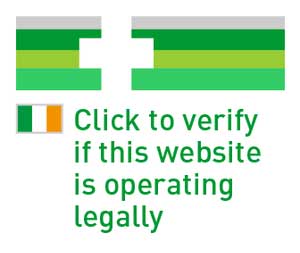Analysis: if you suffer from health anxiety, your worries about lumps, bumps, aches and pains can be persistent and overwhelming
Everyone has concerns about their health at times. Indeed, it is sensible to be aware of any symptoms which may require further investigation. But if you suffer from health anxiety, then your worries about lumps, bumps, aches, and pains can be persistent and overwhelming. Those with health anxiety may have noticed worries have escalated during the pandemic. Moreover, the prospect of returning to some normality may be a daunting one for those with this particular anxiety disorder.
What is health anxiety?
Also referred to as illness anxiety disorder, health anxiety is the fear or belief that one has or will develop a serious illness. Sufferers often interpret minor symptoms as indicative of serious disease and may even believe they will die if they do not act. Unsurprisingly, people often feel panicky, frightened and sometimes angry if others suggest they are overreacting.
Those suffering from health anxiety often engage in behaviours which reduce anxiety in the short term but are actually problematic and serve to maintain anxiety in the long term. Common examples of this include regularly attending the doctor, seeking reassurance from family and friends, checking the body frequently for changes, and researching illnesses online. If you have health anxiety, it is more useful to view Dr Google as your foe and not your friend.
Avoidance is another common behaviour. For instance, some people may be reluctant to attend the doctor, as they are convinced they will be given terrible news. Many sufferers also avoid reading anything to do with illness. They may find their anxiety is exacerbated by watching a medical drama, having learned about more potentially deadly symptoms to be vigilant for.
What causes health anxiety?
There are several possible triggers for health anxiety. Common examples include the illness or death of a family member or friend, a previous experience of illness, general stress and the media.
2020 has undoubtedly been challenging for those with health anxiety. We have rightly been advised to monitor our own symptoms and act responsibly in the interests of public health. So how can this be done whilst coping effectively with the accompanying anxiety?
How to manage health anxiety
Cognitive behavioural therapy (CBT) is an effective and evidence based intervention for health anxiety and discussing treatment options with your GP should be considered. There are also several strategies you can try yourself. The goal is not to eradicate worries about health, but rather to reduce the amount and intensity of worrying
Challenge your unhelpful thoughts
The aim here is to achieve more realistic thinking. As with general anxiety, health worries often overestimate danger and underestimate coping ability. We cannot be certain we will never become ill, however this is often much less likely to occur than health anxiety assumes. When you have a distressing health worry, gather evidence that this is not a fact. Ask yourself if this symptom could actually be something else and not a serious disease? Might it be something quite minor? Have you survived similar symptoms before? What advice would you give a friend about this?
Postpone your worry
If you have a minor symptom or bodily change, postpone your assumption that it will have a catastrophic outcome. Instead make a pact with yourself that you will consider how you feel about the symptom in a week or two. If it is still worrying, you then perhaps you can decide to have it investigated.
Reduce reassurance seeking and checking behaviours
As mentioned already, it is sometimes necessary to seek reassurance about a symptom. However, if you are constantly getting reassurance, you may become very preoccupied with various symptoms and it can become increasingly difficult for you to believe or accept reassurance. It is much more useful to provide yourself with this reassurance by challenging your thoughts.
Keep a diary of how often you are seeking reassurance from others about your health and try to reduce this. Given this may cause a temporary anxiety spike in the short-term, it is useful to have distraction techniques lined up such as chores, reading or walking. You will gradually realise as you seek and receive less reassurance, time spent worrying should also reduce.
You can also use the diary and distraction technique to gradually reduce checking behaviours. As per medical advice, it is necessary to occasionally check your body, but it is not sensible to do this every day. Similarly, it is not advisable to spend much time online researching illnesses. Again, when you try to reduce these behaviours, you should notice a reduction in worry in the long term.
Do not avoid!
You may avoid the doctor due to fear of bad news or generally avoid anything related to illness. If you can pinpoint what you are avoiding, gradually reintroduce it. You should eventually learn that, for example, engaging with a media article about a particular disease does not make you more likely to have it.
Final thought: You may not be ill, but you may have health anxiety It is important to have any persistent symptom investigated, but it is also important to ensure thoughts and beliefs about health are realistic and balanced. The next time you feel overwhelmed by a health thought, stop and ponder this: is this a symptom of a real and serious illness or is this my health anxiety? Chances are it is the latter.
Article Source - Do you suffer from health anxiety? - RTE.ie - Orla McDevitt-Petrovic


